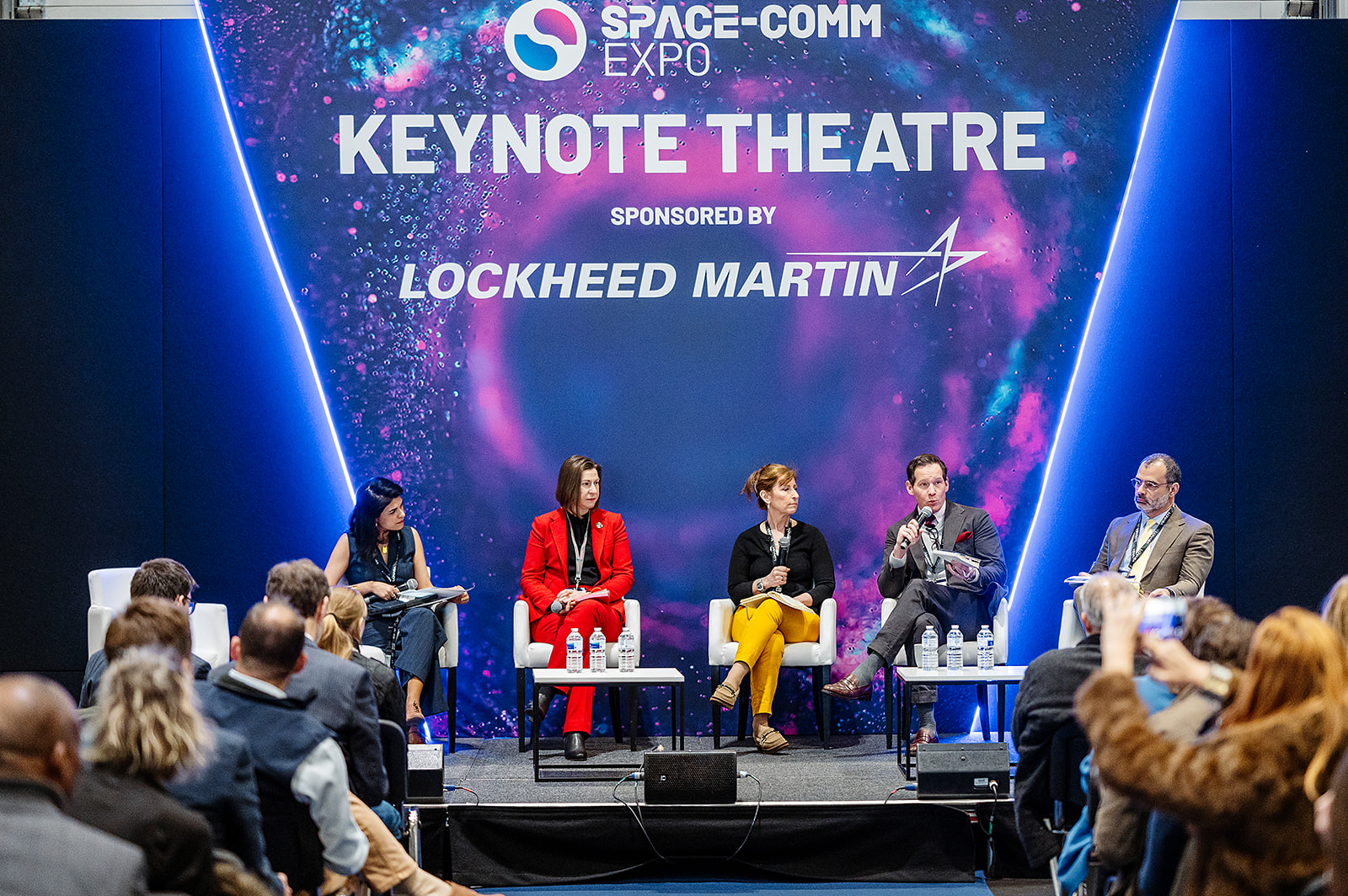UK and France agree climate change mission
Dr Paul Bate, Chief Executive of the UK Space Agency and Laurence Monnoyer-Smith, Director of Sustainable Development of the French space agency, CNES, signed an implementation arrangement for the MicroCarb mission at COP26 today – the United Nations climate change conference being hosted by the UK in Glasgow.

Above: Dr Paul Bate, Chief Executive of the UK Space Agency and Laurence Monnoyer-Smith, Director of Sustainable Development of CNES signing the implementation arrangement for MicroCarb at COP26.
Courtesy UKSA
The UK will provide a further £3.9 million for the mission, due to launch in early 2023, which will be the first European satellite dedicated to measuring atmospheric CO2 from all around the world – the main greenhouse gas caused by human activity.
MicroCarb’s data will contribute to global efforts to measure how much carbon is being emitted by natural processes and how much by human activities. This information will help inform decisions on tackling climate change.
Science Minister George Freeman said:
“The UK is leading the way in using satellites in space to monitor, understand and tackle climate change. Our National Space Strategy sets out our ambition to tackle global challenges through international collaboration, consolidating our status as a science and technology superpower.
“MicroCarb puts our space sector at the heart of a major European space mission which will benefit global efforts to achieve Net Zero and build a more sustainable future.”
The new funding is to complete the build and testing of the satellite, led by Thales Alenia Space at the RAL Space assembly and test facilities on the Harwell Space Cluster, in Oxfordshire, and for National Centre for Earth Observation experts at the universities of Leicester and Edinburgh to translate atmospheric CO2 observation into maps that show carbon sources and sinks and the National Physical Laboratory, in Teddington, to understand how instrument and observation aspects contribute to the data use.
Laurence Monnoyer-Smith, Director of Sustainable Development of CNES, said: “CNES is strongly supporting France's efforts to reach the Paris Agreement’s target. We are therefore very happy to collaborate with the UK Space Agency to develop this ambitious and innovative mission which will bring precious knowledge on where CO2 is most emitted and captured on the planet Earth and how these fluxes will evolve under the influence of the climate change.
“The MicroCarb instrument and system present several innovations to catch the precision measurement required to get a real added value. Using these space data will pave the way to reach an operational carbon service which is a priority for Europe.”
Dr Paul Bate, Chief Executive of the UK Space Agency, said: “Over half of the critical measurements on climate change rely on satellite data. Having more accurate knowledge of how much carbon the world’s forests and oceans absorb will give policymakers the reliable information they need to take decisions on tackling climate change.
“This exciting partnership with CNES showcases the skills of the UK space sector in designing and building complex space instruments and cutting-edge satellites.”
The new funding takes the UK’s contribution to £13.9 million since the two agencies agreed to work on the mission.
MicroCarb, which will become operational in 2023, will monitor Earth’s atmospheric CO2 from space with extreme precision and detect the changes associated with surface emissions and uptake across the world from our cities, forests and oceans. An important feature of the satellite is its special city-scanning observing mode that will allow us to map the CO2 distribution across cities to constrain emissions from cities which are responsible for the majority of global emissions.
Data from MicroCarb will help monitor international progress in meeting the Paris Agreement climate target of limiting global surface warming to well below 2ºC of pre-industrial temperatures.
The government recently launched the National Space Strategy, which outlines the long-term plans to grow the UK space sector and make Britain a science and technology superpower, including building on manufacturing and technology capacity, attracting investment and working internationally.













